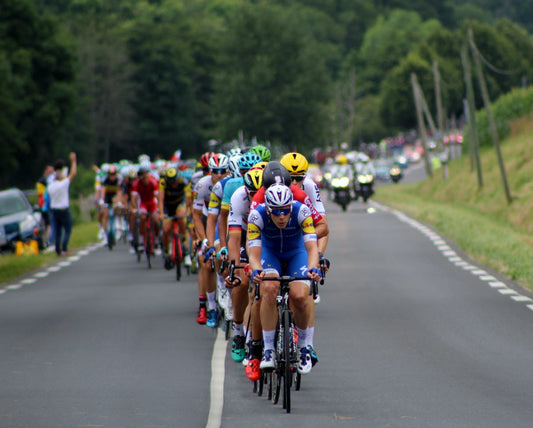doh-ping
Noun
The use of performance-enhancing drugs by cyclists
Example usage: Doping is a serious issue in professional cycling.
Most used in: Professional cycling and other competitive sports.
Most used by: Professional cyclists and those involved in competitive cycling.
Popularity: 8/10
Comedy Value: 3/10
Also see: Doping, Blood Doping, Mechanical Doping, EPO,
What is Doping in Cycling?
Doping in cycling is the use of performance-enhancing substances or methods by riders in order to gain an advantage over their competitors. It is considered unethical and is banned by cycling’s governing bodies. This includes taking illegal drugs, such as anabolic steroids, as well as therapeutic drugs, such as corticosteroids, and other substances that enhance performance.
Doping in cycling is a major concern for the sport, as it can result in unfair advantages for some riders and can have a detrimental effect on the health of those who use performance-enhancing drugs. According to the World Anti-Doping Agency (WADA), the prevalence of doping in cycling is estimated to be between 10% and 20%.
The consequences of doping for cyclists can range from warnings to disqualifications and bans. In some cases, riders have been stripped of titles and medals, and have even been banned from the sport for life. Cycling’s governing bodies take a zero-tolerance approach to doping, and any rider found to be using performance-enhancing drugs or methods can face serious sanctions.
Doping in cycling is a major problem for the sport, and the use of performance-enhancing substances or methods is strictly prohibited. Riders must abide by the rules set out by cycling’s governing bodies, or risk facing serious consequences.
.The Origins of the Word 'Doping' in Cycling
The word 'doping' has become synonymous with cheating in sports, and is especially associated with cycling. It was first used in the context of professional cycling in the early 1900s. The first recorded use of the term was in a Danish publication from 1901, where it was used to describe the use of drugs to increase a cyclist's performance.
The term 'doping' was first used in English in a newspaper article in 1903. It was used to describe the use of stimulants by riders during a race in the Tour de France. This article sparked a national debate in France about the use of drugs in cycling.
Since then, the use of doping has been a major issue in professional cycling. The World Anti-Doping Agency was established in 1999 to combat it, and has since implemented rigorous testing procedures and strict punishments for those caught doping.
The term 'doping' has been in use for over a century, and has become a part of the language of cycling. Its use has spread to other sports, and it is now used to describe the use of banned substances in any sport.












